Women who come into contact with the law
Date:
UN Women Regional Director visits northern Thailand with HRH Princess Bajrakitiyabha Mahidol of Thailand, the Thailand Institute of Justice (TIJ) and United Nations Office on Drugs and Crime (UNODC)
Chiang Mai and Chiang Rai, Thailand — Women in prison settings are a vulnerable group whose minimum standards for treatment are detailed in the United Nations Rules for the Treatment of Women Prisoners and Non-custodial Measures for Women Offenders (known as the "Bangkok Rules") as well as in CEDAW recommendations[1]. In the spirit of leaving no one behind, a central pledge of the 2030 Agenda for Sustainable Development, UN Women is advocating to promote the rights of women in detention and to shed light on the plight of this marginalized group.
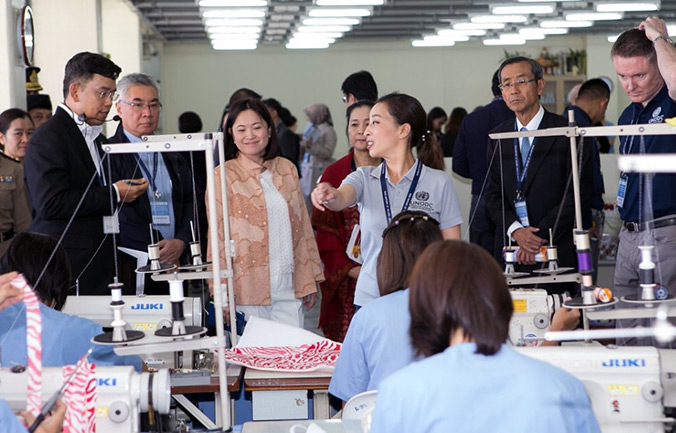
While in most prison systems women constitute less than 10 per cent of the population[2], their numbers are growing rapidly, with reports indicating an increase in the numbers of women in prison by 50 per cent over the past 15 years[3]. They are exposed to a prison system largely designed for men, that fails to meet their basic needs and often sees them victimized because of gender.
The stories of women who come into contact with the criminal justice system point to larger issues of discrimination and deprivation. In many countries in the Asia and Pacific region, the offences women commit are closely linked to lack of education as well as poverty. In particular, the proportion of women serving prison sentences for drug related crimes is comparatively high. For example, a study published by Thailand's Institute of Justice shows that over 80 per cent of women in Thai prisons are incarcerated for drug-related offences[4].
While the condition of women in prisons must be improved, there should also be focused attention to reducing the number of women who end up behind bars. Prisons are filled with women serving sentences for drug-related offences, prostitution or petty crime, some of whom are also unrecognized victims of violence against women including human trafficking.
Changing dynamics in the Greater Mekong Sub-Region have exacerbated the potential for, and impacts of trafficking. Women and girls frequently become the targets of smugglers seeking to satisfy demand for the sex trade, domestic workers and young brides with little or no protection. The ongoing influx of displaced and refugee populations from Myanmar to surrounding countries is increasing incidents. Disparity in socio-economic progress in the region also fuels the movement of people which often makes women and girls more vulnerable to trafficking and coming into contact with the law as offenders.
During 25-27 January 2018, UN Women's Asia Pacific Regional Director Miwa Kato visited Chang Mai and Chang Rai provinces in northern Thailand to better understand these dynamics and to advocate for women's unique circumstances when encountering the criminal justice system.
As a part of an innovative study tour and regional colloquium hosted by the Thailand Institute of Justice (TIJ) and the United Nations Office on Drugs and Crime (UNODC), under the leadership of HRH Princess Bajrakitiyabha Mahidol of Thailand, the delegation visited Chiang Mai's Women Correctional Institution. At this institution which is designated as one of 6 model prisons to roll out the Bangkok Rules, the specific needs of female inmates are largely addressed including with regards to pregnancy, childbirth and newborn care.
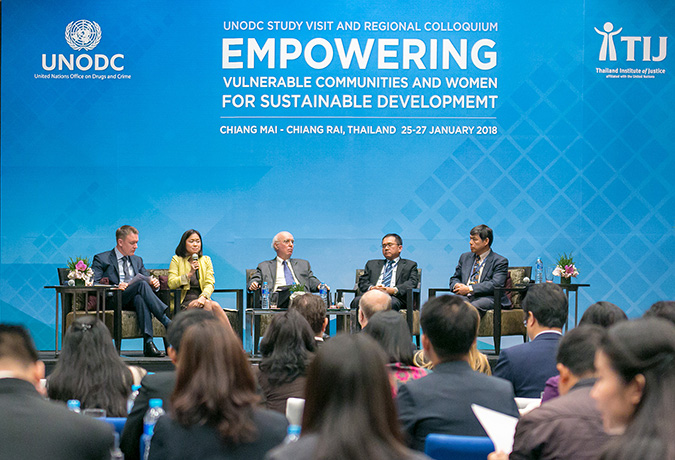
In-depth discussions continued into the Regional Colloquium "Empowering Vulnerable Communities and Women for Sustainable Development" where UN Women's Regional Director spoke on the importance of sustainable reintegration for female offenders. "Our systems must be people-centered and gender-sensitive. The goal of the corrections process is to create people who can return to societies as responsible productive citizens and for that, the approach needs to be empowering and restorative. The services for prisoners must reflect these principles" she said. "They must provide conditions for the reintegration of both female and male prisoners upon their release, ensuring they don't become caught up in the same cycles of crime. And they must work in partnership with the community to ensure that reintegration at the social and economic level is sustainable."
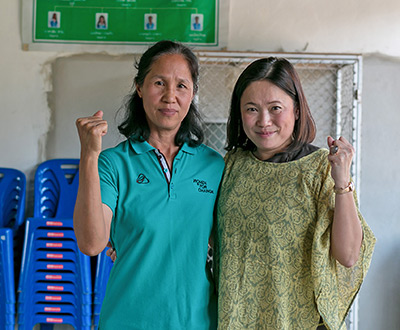
The UN Women team also visited Chiangsen, a remote district in Chang Rai province, Thailand's northern most region bordering Lao PDR, witnessing the brunt of changing dynamics in the Greater Mekong Sub-Region. An NGO partner "Centre for Girls" is working to empower women and children and educate the populace about human trafficking and other crime prevention issues, focusing on the needs of women and girls. The Regional Director met with 20 women community leaders supported under the "Women for Change" initiative to hear how they are working with their communities to report cases of abuse and detect early warning signs of trafficking. Most importantly, these women provided encouraging evidence of how targeted awareness raising and training was preparing women for greater leadership roles in their communities, so that they can affect change through public office and other influences. Some are currently standing for the office of village chief. Currently only 1 of the 104 villages in the sub-district has a female chief.
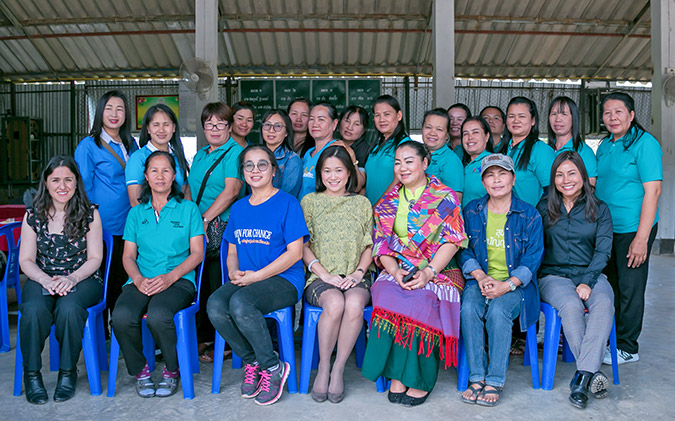
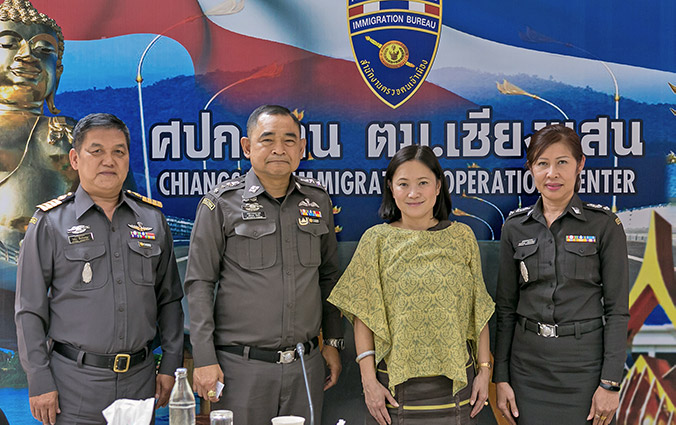
In 2018, in collaboration with UNODC, UN Women is planning to take issues of women and the law forward under a new joint programme that will target trafficking in border communities. The programme will increase the gender responsiveness of border security personnel, as well as economically empowering women and girls at risk of being trafficked, in the context of prevention as well as reintegration at community level. Through this programme, aimed to be launched in spring 2018, UN Women and UNODC will join forces to address the root causes of why increasing numbers of women are coming into contact with the criminal justice system.
- See general recommendation no. 33 on women's access to justice adopted in 2015
- Female prisoners generally (in about 80% of prison systems) constitute between 2 and 9 per cent of the total prison population: see Institute for Criminal Policy Research, World Female Imprisonment List (third edition)
- Ibid.
- Thailand Institute for Justice, "Women Prisoners and the Implementation of the Bangkok Rules in Thailand" (2014)